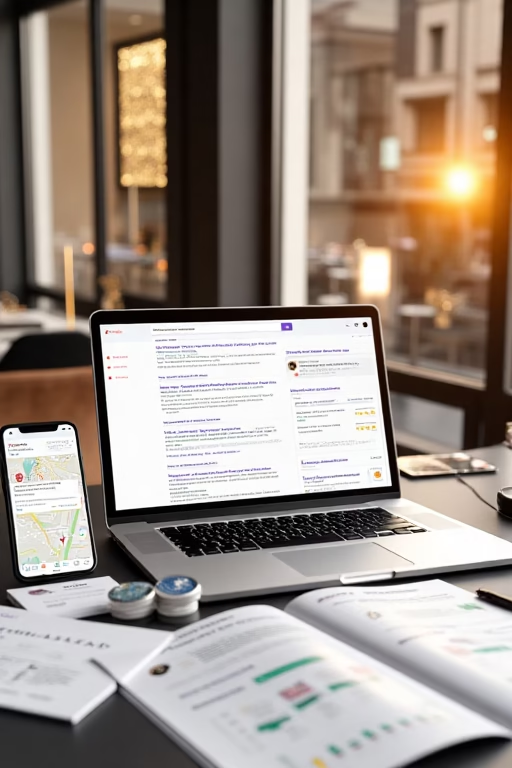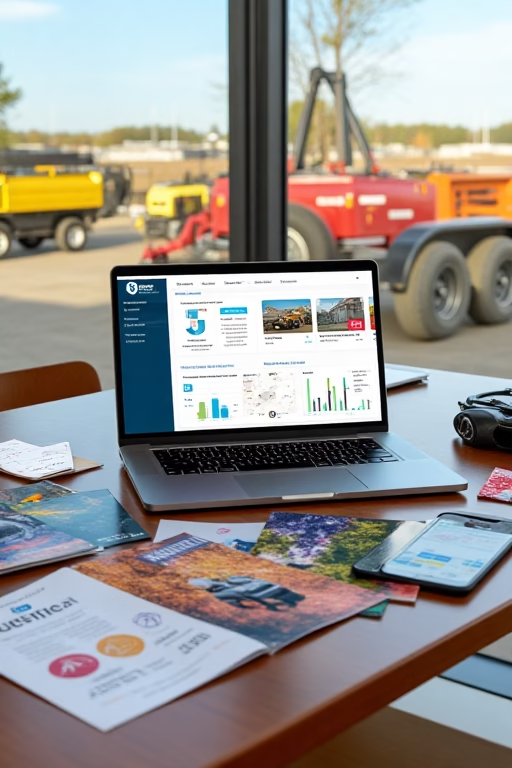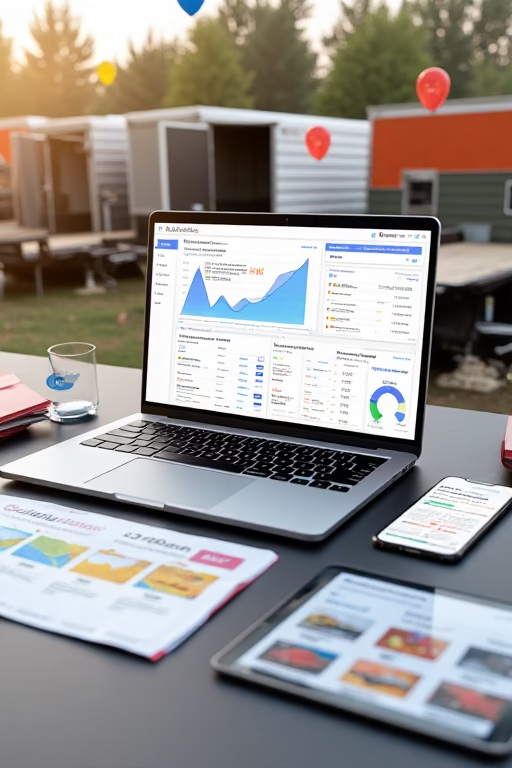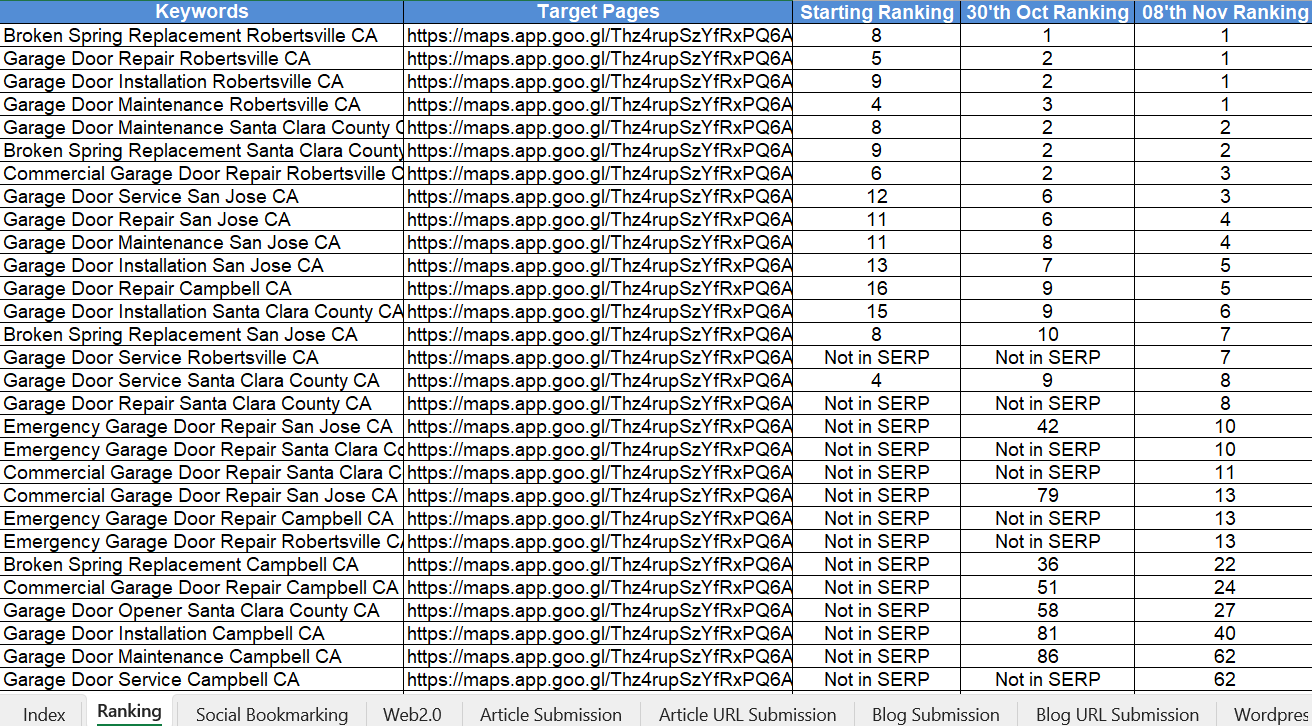Why Google Maps SEO Is Essential for Jewelry Stores
Why Google Maps SEO Is Essential for Jewelry Stores
In the highly competitive world of luxury retail, establishing a strong local presence is crucial for jewelry stores. While many businesses focus on online and social media marketing, one of the most underutilized tools for driving local traffic is Google Maps SEO. For high-end jewelry stores, dominating local search results on Google Maps can lead to increased foot traffic, enhanced brand credibility, and higher sales.
This comprehensive guide explores why Google Maps SEO is essential for jewelry stores and offers actionable strategies to optimize your local online presence. From optimizing your Google My Business listing to leveraging local reviews and citations, you’ll learn how to make your store stand out in local searches, attract discerning customers, and build lasting trust.
Table of Contents
- 1. Why Google Maps SEO Matters for Jewelry Stores
- 2. Optimizing Your Google My Business Listing
- 2.1 Claiming and Verifying Your Listing
- 2.2 Ensuring Accurate NAP Information
- 2.3 Adding Quality Photos and Reviews
- 3. Building Local Citations and Backlinks
- 4. Creating Locally Relevant Content
- 5. Technical SEO and User Experience
- 6. Leveraging Reviews and Customer Feedback
- 7. Case Studies: Jewelry Stores Winning with Maps SEO
- 8. Conclusion
- 9. Frequently Asked Questions (FAQ)
- 10. 25 Additional Keywords
1. Why Google Maps SEO Matters for Jewelry Stores
Google Maps SEO is a powerful tool for jewelry stores looking to attract local customers. When potential buyers search for high-end jewelry in your area, appearing prominently on Google Maps can increase your visibility and drive more foot traffic to your physical store.
Local search results on Google Maps not only provide vital information such as location, hours, and contact details but also incorporate customer reviews and ratings. This social proof builds trust and positions your store as a reputable, high-quality retailer in the luxury market.
1.1 Boosting Local Visibility
With most local searches now taking place on mobile devices, a well-optimized Google Maps listing ensures that your jewelry store appears in the “Local Pack” and Google Maps results. This increased visibility means more potential customers will see your business when they search for “jewelry stores near me” or “luxury jewelry in [City].”
- High Ranking: A top ranking in Google Maps can significantly increase website visits and physical store traffic.
- Example: When a customer searches for “luxury jewelry [City],” a prominent Maps listing builds instant credibility and drives engagement.
1.2 Building Trust and Credibility
Reviews, ratings, and accurate business information are key components of a trustworthy Google Maps listing. When your jewelry store has a well-maintained profile with positive customer feedback, potential buyers are more likely to trust your brand and consider making a purchase.
- Customer Reviews: Positive reviews act as endorsements, building your reputation.
- Consistent NAP: Consistent Name, Address, and Phone (NAP) details across all platforms reinforce your legitimacy.
- Example: A jewelry store boasting a 4.9-star rating on Google Maps instills confidence in prospective customers.
2. Website Optimization for Local SEO
Your website is the digital storefront for your jewelry business. Optimizing it for local SEO ensures that customers not only find your Google Maps listing but also have a seamless experience when they visit your site. Key areas of focus include on-page optimization, mobile responsiveness, and the strategic use of local keywords.
2.1 On-Page Optimization
Optimize your website’s titles, meta descriptions, headers, and content with localized keywords. This practice helps search engines understand your business’s geographical relevance and increases your chances of appearing in local searches.
- Localized Meta Tags: Incorporate your city or region in your page titles and meta descriptions.
- Content Structure: Use header tags (H1, H2, H3) to organize your content and naturally include local keywords.
- Example: "Luxury Jewelry in [City] – Exquisite Designs and Exceptional Service" is an effective title.
2.2 Mobile Friendliness and Speed
With the majority of local searches occurring on mobile devices, your website must be optimized for mobile users. A fast-loading, responsive website improves user experience and encourages visitors to explore your products.
- Responsive Design: Ensure your website adapts to all screen sizes.
- Fast Loading Times: Optimize images and use caching to improve speed.
- Example: A mobile-friendly website that loads within three seconds can dramatically reduce bounce rates and improve conversion rates.
2.3 Using Local Keywords Effectively
Integrate local keywords naturally throughout your website. Use terms that include your city, region, and relevant phrases specific to the jewelry industry to help drive local search traffic.
- Keyword Research: Use tools like Google Keyword Planner to identify effective local keywords.
- Strategic Placement: Include local keywords in your content, alt text, and URLs.
- Example: Phrases like "high-end jewelry in [City]" or "luxury diamond rings [Region]" help improve local SEO.
3. Google My Business and Local Citations
Google My Business (GMB) is a critical component of local SEO. An optimized GMB listing not only improves your visibility on Google Maps but also provides essential information such as business hours, contact details, and customer reviews.
3.1 Optimizing Your Google My Business Listing
Claim and verify your GMB listing and ensure that all information is accurate and up-to-date. Upload high-quality images, list your services, and update your business hours regularly.
- Accurate NAP: Consistency in your Name, Address, and Phone number is essential.
- Visual Appeal: Add professional photos and videos of your store and products.
- Example: A GMB listing with clear images, detailed descriptions, and a 4.9-star rating will attract more local customers.
3.2 Building Consistent Local Citations
Local citations—mentions of your business’s name, address, and phone number on various directories—help reinforce your local presence. Consistency across these platforms is key to improving your local SEO.
- Directory Listings: List your jewelry store on reputable sites like Yelp, Yellow Pages, and industry-specific directories.
- Uniform Information: Ensure your NAP details are identical across all platforms.
- Example: Consistent citations improve your credibility and boost your local search rankings.
3.3 Managing and Encouraging Reviews
Positive reviews are crucial for building trust and boosting local SEO. Encourage satisfied customers to leave reviews on your GMB listing and other relevant platforms.
- Review Requests: Ask customers for reviews after a successful purchase or service.
- Engage with Feedback: Respond to reviews, both positive and negative, to show that you value customer feedback.
- Example: "We’d love to hear your feedback—please leave us a review on Google and share your experience with our jewelry."
4. Content Strategy and Local Link Building
Creating high-quality, locally relevant content is an effective way to boost your SEO and establish your jewelry store as an authority in your area. This content not only engages your audience but also attracts valuable backlinks.
4.1 Creating Locally Relevant Content
Develop blog posts, guides, and articles that address topics of interest to your local audience. Whether it’s highlighting local events, seasonal jewelry trends, or customer success stories, localized content can drive traffic and engagement.
- Local Focus: Write content that incorporates local keywords and mentions community events.
- Engaging Topics: Cover topics such as "The Best Jewelry Boutiques in [City]" or "How to Choose the Perfect Engagement Ring in [Region]."
- Example: A blog post on "5 Jewelry Trends to Watch in [City] This Season" can attract local traffic and build authority.
4.2 Local Link Building Tactics
Building backlinks from local sources enhances your site’s authority. Collaborate with local influencers, sponsor community events, or contribute guest posts to local blogs and news sites.
- Local Partnerships: Work with local fashion bloggers, event organizers, or industry publications.
- Guest Posts: Write articles for local websites and include links back to your site.
- Example: A guest post on a local lifestyle blog discussing "Jewelry Trends in [City]" can yield valuable backlinks and drive traffic.
5. Technical SEO and User Experience
A technically optimized website provides a better user experience and makes it easier for search engines to crawl and index your content. Focusing on site structure, schema markup, and analytics will further enhance your SEO efforts.
5.1 Site Structure and Navigation
Organize your website with a clear structure and intuitive navigation. This helps both users and search engines locate the information they need quickly.
- Clear Menus: Use user-friendly navigation menus to highlight important pages.
- Internal Linking: Link related pages together to improve user engagement and SEO.
- Example: A site section titled "Local Jewelry Reviews in [City]" reinforces local relevance.
5.2 Schema Markup for Local Businesses
Schema markup helps search engines better understand your website’s content, including your business information and reviews. This can result in enhanced rich snippets that make your listing more attractive in search results.
- Local Business Schema: Implement structured data to mark up your address, phone number, operating hours, and reviews.
- Example: Rich snippets displaying star ratings and review counts can improve your click-through rates.
5.3 Monitoring and Analytics
Regularly monitor your website’s performance with tools like Google Analytics and Google Search Console. Tracking metrics such as organic traffic, bounce rates, and conversion rates will help you adjust your SEO strategy for optimal performance.
- Key Metrics: Keep an eye on keyword rankings, organic traffic, and user engagement.
- Regular Audits: Perform periodic SEO audits to identify and resolve issues.
- Example: An increase in organic traffic after improving your review section indicates successful optimization.
6. Offline Strategies That Complement Online Reviews
Offline marketing initiatives can further enhance your online reputation and boost your SEO. Engaging with your local community and participating in local events can lead to valuable backlinks and additional customer reviews.
6.1 Community Engagement and Sponsorships
Participate in local events and sponsor community activities to increase your brand’s visibility and earn local backlinks. These efforts can also encourage more customers to leave positive reviews.
- Local Sponsorships: Sponsor events or charitable activities related to the jewelry or luxury sector.
- Partnerships: Collaborate with local businesses to exchange reviews and testimonials.
- Example: Sponsoring a local fashion show or charity gala can result in media coverage and valuable local backlinks.
6.2 Leveraging Local Events and Partnerships
Hosting or participating in local events provides opportunities to generate real-time customer feedback and reviews. Use these events to build your local presence both online and offline.
- Event Pages: Create dedicated event pages that promote your participation in local activities.
- Media Outreach: Engage with local media to cover your events and link back to your website.
- Example: An event like "Luxury Jewelry Showcase 2025 in [City]" can drive both in-store visits and online engagement.
7. Case Studies: The Impact of Reviews on Jewelry Sales
Real-life examples demonstrate how effectively leveraging reviews can transform a jewelry store’s online presence and boost sales. Here are two case studies showcasing the benefits of customer feedback.
7.1 Private Seller Success Story
Emily, a private seller of custom engagement rings, actively requested reviews from satisfied customers and prominently displayed them on her website. Her authentic customer testimonials helped build trust, resulting in a 30% increase in online inquiries and faster sales.
- Key Strategies: Prompt review requests and visible social proof.
- Outcome: Increased trust and higher conversion rates.
7.2 Multi-Channel Strategy for a Boutique Jewelry Store
A boutique jewelry store enhanced its online reputation by integrating customer reviews into its Google My Business listing, website, and social media profiles. The consistent positive feedback led to higher local search rankings and a 45% increase in store visits and online sales.
- Key Strategies: Consistent review management across multiple channels and active customer engagement.
- Outcome: Improved local SEO and increased customer trust and sales.
8. Conclusion
Reviews are a vital component of any successful online marketing strategy, especially for high-end jewelry stores. They build trust, enhance your SEO performance, and significantly influence buyer decisions. In a market where customers are making multi-million dollar decisions, the voice of previous buyers is invaluable.
By optimizing your Google My Business listing, collecting and managing customer reviews, and leveraging these testimonials across all your digital channels, you can establish your brand as a trusted authority in the luxury jewelry market. This not only boosts your online visibility but also drives more qualified leads to your store, ultimately resulting in increased sales and customer loyalty.
Embrace the power of reviews and make them a central part of your digital marketing strategy. Consistent effort in review management and SEO optimization will ensure your jewelry store stands out in local searches and attracts discerning buyers.
9. Frequently Asked Questions (FAQ)
1. Why are customer reviews important for jewelry stores?
Reviews build trust and credibility, serving as social proof that encourages potential buyers to choose your store over competitors.
2. How do reviews affect my local SEO?
Reviews add fresh, unique content to your website and Google My Business listing, improving your local search rankings and visibility.
3. What strategies can I use to encourage customers to leave reviews?
Ask for reviews after a purchase, send follow-up emails with direct links to your review profiles, and consider offering small incentives.
4. How should I respond to negative reviews?
Respond promptly and professionally, acknowledge the issue, offer a solution, and invite the customer to contact you directly to resolve the matter.
5. Can reviews improve my conversion rates?
Yes, positive reviews serve as social proof that can significantly boost conversion rates by reassuring potential buyers of your product quality.
6. How can I optimize the review section on my website?
Create a dedicated review section or widget that is easily accessible and prominently displays your best testimonials and overall ratings.
7. How do I manage reviews on Google My Business?
Regularly update your GMB listing with new photos, respond to customer reviews, and encourage satisfied customers to leave feedback.
8. Are video reviews effective for building trust?
Yes, video reviews add authenticity and provide a personal touch that can significantly enhance trust among potential buyers.
9. How can I leverage reviews in my marketing efforts?
Share positive reviews on your social media channels, incorporate them into your email campaigns, and use them in paid advertising to build credibility.
10. What is schema markup and how does it relate to reviews?
Schema markup helps search engines understand and display review information (such as star ratings) in search results, enhancing your listings with rich snippets.
11. How often should I ask for reviews?
It’s best to ask for reviews after each sale or service interaction to maintain a steady flow of feedback.
12. Do reviews influence my local search rankings?
Yes, a consistent stream of positive reviews signals to search engines that your business is reputable, boosting your local search rankings.
13. What are local citations and how do they work with reviews?
Local citations are mentions of your business’s name, address, and phone number on various directories. They work in tandem with reviews to improve your local SEO.
14. How do I handle duplicate reviews?
If duplicate reviews appear on your listings, report them to the platform to maintain the integrity of your review profile.
15. Is it important to respond to every review?
Yes, responding to both positive and negative reviews shows that you value customer feedback and are dedicated to providing excellent service.
16. How do reviews impact buyer trust?
Reviews provide real-life proof of customer satisfaction, which builds trust and can significantly influence a buyer’s decision-making process.
17. Can reviews help increase foot traffic to my store?
Absolutely. Positive reviews on your Google My Business listing can encourage local customers to visit your physical store.
18. How can I integrate reviews into my social media strategy?
Share customer testimonials and high ratings on platforms like Instagram, Facebook, and Twitter to enhance your brand’s credibility.
19. Do reviews contribute to building my brand reputation?
Yes, a strong portfolio of positive reviews enhances your brand’s reputation and differentiates you from competitors.
20. Can negative reviews ever benefit my business?
Handled correctly, negative reviews provide opportunities to improve your service and show potential customers that you are committed to resolving issues.
21. How do I encourage detailed reviews?
Ask customers specific questions about their experience and request feedback on particular aspects of your service or product.
22. How do reviews affect paid advertising campaigns?
Integrating positive reviews into your ads can boost click-through rates and conversion rates by adding an element of social proof.
23. Should I display reviews on my landing pages?
Yes, including customer reviews on landing pages can enhance credibility and improve conversion rates.
24. What tools can I use to manage and monitor reviews?
Use platforms like Google My Business, ReviewTrackers, and social media monitoring tools to manage and track customer reviews effectively.
25. How do I measure the ROI of my review strategy?
Monitor metrics such as conversion rates, click-through rates, and overall sales growth using analytics tools like Google Analytics and Google Search Console.
10. 25 Additional Keywords
- Trailer Reviews
- Online Trailer Reviews
- Customer Reviews Trailers
- Trailer Sales Reviews
- Utility Trailer Reviews
- Trailer Feedback
- Trailer Business Reviews
- Reviews for Trailers
- Trailer Testimonials
- Social Proof Trailers
- Trailer Reputation
- Online Reviews Trailer Sales
- Trust in Trailer Sales
- Trailer Seller Reviews
- Positive Trailer Reviews
- Trailer Review Management
- Utility Trailer Testimonials
- Trailer Business SEO Reviews
- Trailer Reviews Importance
- Buyer Feedback Trailers
- Trailer Customer Satisfaction
- Trailer Listing Reviews
- Impact of Reviews Trailers
- Online Reputation Trailers
- Trailer Review Strategy
Why Google Maps SEO Is Essential for Jewelry Stores Read More »








4.3 Leveraging Social Signals
Social media not only drives direct traffic but also indirectly influences your SEO. Sharing your locally relevant content on platforms like Instagram, Facebook, and Twitter can generate engagement, shares, and backlinks.